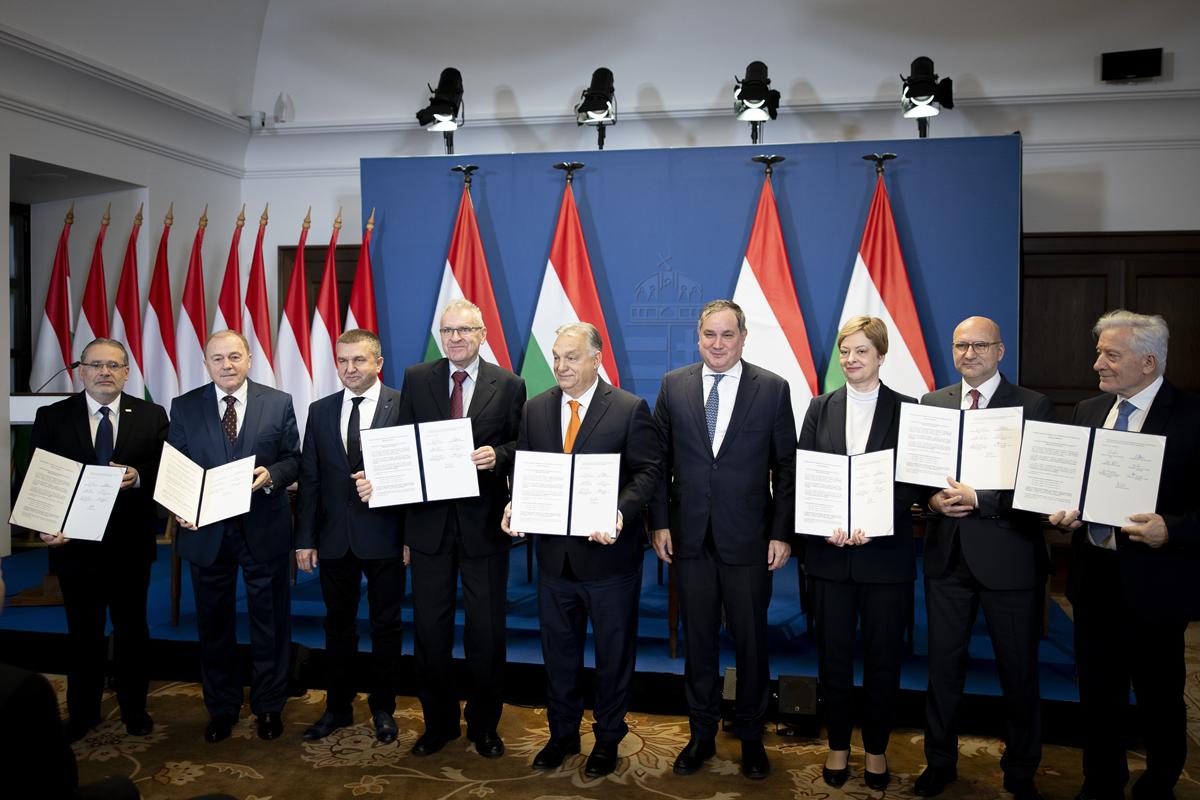BREAKING! Three-year minimum wage agreement set to impact everyone’s pay in Hungary 🔄

Representatives of employers, unions and the government signed an agreement on minimum wage increases over the next three years on Monday.
Under the agreement, the minimum wage will rise by an annual average 12pc over the next three years, increasing 9pc to (EUR 706) HUF 290,800 in 2025, 13pc to 328,600 (EUR 798) in 2026 and 14pc to 909 in 2027.
The minimum wage for skilled laborers will rise by 7pc to 348,800 in 2025.
The sides aim to boost the minimum wage to 50pc of the average wage by the start of 2027. They commit to boosting employee remuneration based on economic growth and business efficiency and productivity improvements.
After the signing, Prime Minister Viktor Orbán said the agreement was based on the assumption that peace would be achieved in 2025 and economic development would advance accordingly. He added that GDP growth over 3pc was “realistic” in 2025.
Acknowledging that the agreement was based on an optimistic scenario, he said that an override clause had been included allowing modifications in case of contingencies. He added that the government trusted that activating the clause would not be necessary.
Orbán said implementing the agreement would not be easy, adding that repeating the economic performance of 2024 and 2023 would be insufficient to justify the wage increases. Management and workers “need to do more for economic growth than in the preceding years.”
He said that the minimum wage, adjusted for inflation, was expected to climb by 29pc.
Orbán augured a “fantastic” year in 2025 with economic growth supported by a “boom” in state investments. He said 300 new investment, with a combined value of EUR 19.72bn (HUF 8,100bn), would start next year, pumping HUF 450bn into the economy in 2025. He added that the upgraded Budapest-Belgrade rail line would be completed in 2025, while big factories would be inaugurated in Győr, Szeged and Debrecen.
He said SMEs would benefit from the Demjan Sandor Programme that would make EUR 3.41bn (HUF 1,410bn) accessible to local businesses, while young workers could avail of a zero-interest credit scheme and employers could apply tax preferences to more non-wage benefits for housing.
Orbán said the government wanted to see the average wage rise to HUF 1 million/month “in the foreseeable future”. He added that the government was ready to take steps to support businesses in achieving that goal.
Orbán acknowledged the work of National Economy Minister Márton Nagy and Finance Minister Mihály Varga at the wage talks.
read also: Is Hungary’s safety at risk? Police face serious challenges
László Perlusz, the chief secretary of business association VOSZ, said the agreement was “extraordinarily ambitious”.
Melinda Mészáros, the head of unions association Liga, noted that the agreement allowed for corrections if macroeconomic assumptions diverged from GDP or wage developments.
read also: Will employment of guest workers in Hungary face further restrictions soon?


It feels like they’re pricing in the anticipated erosion in the value of the Forint in order to keep wages at parity with today. Nobody can predict the market with any guarantees but a downward erosion in the value of the currency is likely, in which event these wages will be worth the same expressed in Euros as they are today. Meanwhile, inflation will continue elsewhere ensuring that the cost of imported goods will continue to rise, the net result will be a continuing decline in living standards. The great thing about the currency markets is that they can point the blame at nebulous market actors and disclaim all responsibility: “we’ve increased wages as we said we would, we’re not responsible for currency market movements.” The truth of course is that in a small country like Hungary with an illiquid currency, the central bank is the biggest market actor bar none, the exchange rate is a direct product of their monetary policy (or passivity).